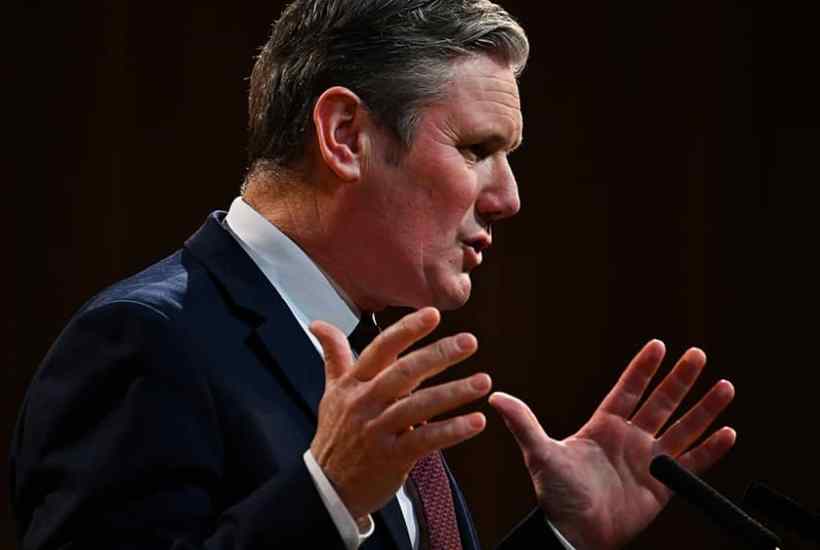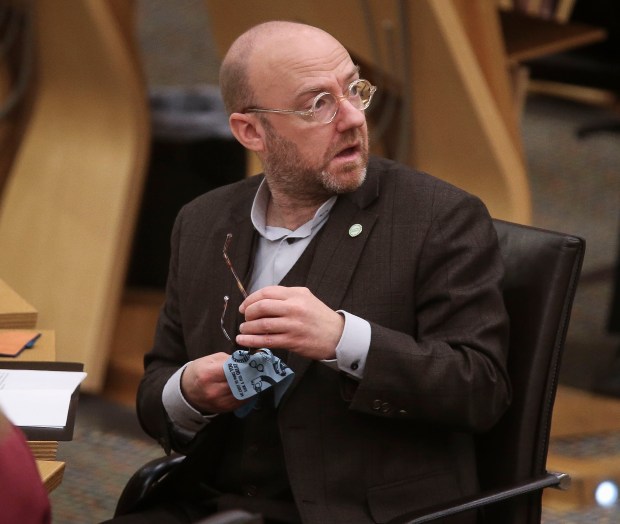Sir Keir Starmer’s interpretation of the Equality Act has caused something of a stir. The Labour leader cited the Brown-era legislation to support his assertion that ‘trans women are women’ and that this ‘happens to be the law in the United Kingdom’. This reading of the Act has drawn criticism from gender-critical feminists, including the trans writer Debbie Hayton, who states:
If Keir Starmer thinks that I am a woman, I am delighted to tell him the truth. Transwomen (like me) are male, while women (like my wife) are female. Biology does not lie, male is not female, and therefore transwomen are not women.
For all my many other sins, I am not a lawyer. When I read the Equality Act, as a layman, it seems clear that its two relevant protected characteristics are ‘gender reassignment’ and ‘sex’. ‘A transsexual person’, for the purposes of the Act, is ‘a person who has the protected characteristic of gender reassignment’, while the characteristic of sex is ‘a reference to a man or to a woman’ and ‘a reference to persons who share a protected characteristic is a reference to persons of the same sex’. The Act does not list ‘gender’ as a protected characteristic and it defines ‘gender reassignment’ as ‘reassigning the person’s sex by changing physiological or other attributes of sex’.
The other reason I know that the Equality Act doesn’t list ‘gender’ is that lobby groups and sympathetic public bodies routinely conflate sex and gender when talking about the Act or even outright misrepresent it by listing ‘gender’ or ‘sex and gender’ as the protected characteristic. If you think the law is already on your side, you don’t have to misstate it to make your case.
Here’s the thing, though. Maybe I’m wrong. I often am. Maybe Sir Keir is correct. He occasionally is. I’d suggest, however, that who’s right and who’s wrong, while very important, doesn’t change the impact of this debate on the Equality Act itself. A previously banal, uncontroversial piece of legislation is being placed at the heart of an acrimonious debate about first principles. That will not be without consequences.
The risk might not seem immediately obvious. The next election will be fought like the last one was between two broadly liberal parties, neither of which is terribly fussed about the Equality Act and certainly not minded to repeal or significantly amend it. But I’m not altogether convinced the future is with liberalism, at least going by current trends on left and right.
The illiberal right has made greater inroads in the United States and on the continent but there are green shoots visible in Britain. This is not the conservatism documented and espoused in the pages of The Spectator, with its sunny liberal Thatcherism, but the various offshoots of right-wing post-liberalism, from national populism and the harsh state to provincialism and competing ideals of the common good.
The left’s anti-liberalism has been more successful in Britain and is embodied in the rise of coercive progressivism, a collection of authoritarian impulses towards freedom of expression, religious conscience, and the integrity of the private sphere, especially the family. The drive to force people to be progressive is at its most insatiable in relation to relatively new and highly contentious rethinkings of race and racism, as well as the belief that ‘gender identity’ both supersedes sex and is a matter of self-definition divorced from biology, medical classification and empiricism itself. The post-liberal left is especially anxious about the failure of observable reality to adhere to progressive doctrine and this as much as any impatience with political gradualism helps explain the party-line shift away from equality to ‘equity’ and more radical attacks on the social system.
Admittedly, philosophical evolutions of left and right are not the most scintillating subject matter. Netflix isn’t going to turn them into a 12-part drama any time soon. But they are important in the context of how the Equality Act is being dragged into the trans debate and what that could mean for the legislation and the political assumptions that underpin it. A post-liberal order, if that is indeed what we’re heading for, would be one in which the Equality Act would struggle to survive.
The post-liberal right sees the Act as the embedding in law of leftist ideology and deems its stratifications inorganic and socially disruptive. It would sorely love to get shot of the Act as an opening salvo against rights-based liberalism. The post-liberal left increasingly views the Act’s overall purpose — the very idea of equal treatment under the law — as outdated, redolent of white and other forms of privilege, and inhibitive of the sort of systemic upheaval progressives deem essential to achieving justice.
This all sounds very far away from a spineless politician giving a spineless answer to a question he knows he’s not allowed to answer honestly, but it’s not all that far. We are living through a violent changing of the political seasons in which even basic assumptions are becoming suddenly unmoored. Or, if you want what the kids call the tl;dr version: don’t pin everything that matters to you on the Equality Act. It may not be around as long as you think.
Got something to add? Join the discussion and comment below.
Get 10 issues for just $10
Subscribe to The Spectator Australia today for the next 10 magazine issues, plus full online access, for just $10.




















Comments
Don't miss out
Join the conversation with other Spectator Australia readers. Subscribe to leave a comment.
SUBSCRIBEAlready a subscriber? Log in